Principal Investigator: Dr Alex Mullen
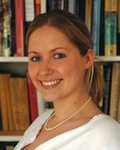 My main research interests lie in the application of contemporary sociolinguistics to the ancient world and the integration of linguistics and archaeology to write socio-cultural history. My primary area of expertise is Iron Age and Roman Britain and Gaul. I have published the following books: Southern Gaul and the Mediterranean: Multilingualism and Multiple Identities in the Iron Age and Roman Periods (2013, Cambridge), (co-edited with Patrick James) Multilingualism in the Graeco-Roman Worlds (2012, Cambridge), (co-authored with Coline Ruiz Darasse) Gaulish. Language, writing, epigraphy (2018, Zaragoza, also translated into French and Spanish) and (co-authored with Olivia Elder) Language of Roman Letters (2019, Cambridge). I did my degrees and a Research Fellowship at Cambridge, before moving to Oxford and Nottingham Universities. For LatinNow I am primarily researching the cultural and linguistic histories of Britannia and Gaul.
My main research interests lie in the application of contemporary sociolinguistics to the ancient world and the integration of linguistics and archaeology to write socio-cultural history. My primary area of expertise is Iron Age and Roman Britain and Gaul. I have published the following books: Southern Gaul and the Mediterranean: Multilingualism and Multiple Identities in the Iron Age and Roman Periods (2013, Cambridge), (co-edited with Patrick James) Multilingualism in the Graeco-Roman Worlds (2012, Cambridge), (co-authored with Coline Ruiz Darasse) Gaulish. Language, writing, epigraphy (2018, Zaragoza, also translated into French and Spanish) and (co-authored with Olivia Elder) Language of Roman Letters (2019, Cambridge). I did my degrees and a Research Fellowship at Cambridge, before moving to Oxford and Nottingham Universities. For LatinNow I am primarily researching the cultural and linguistic histories of Britannia and Gaul.
Research Fellow on Germania Superior: Dr Anna Willi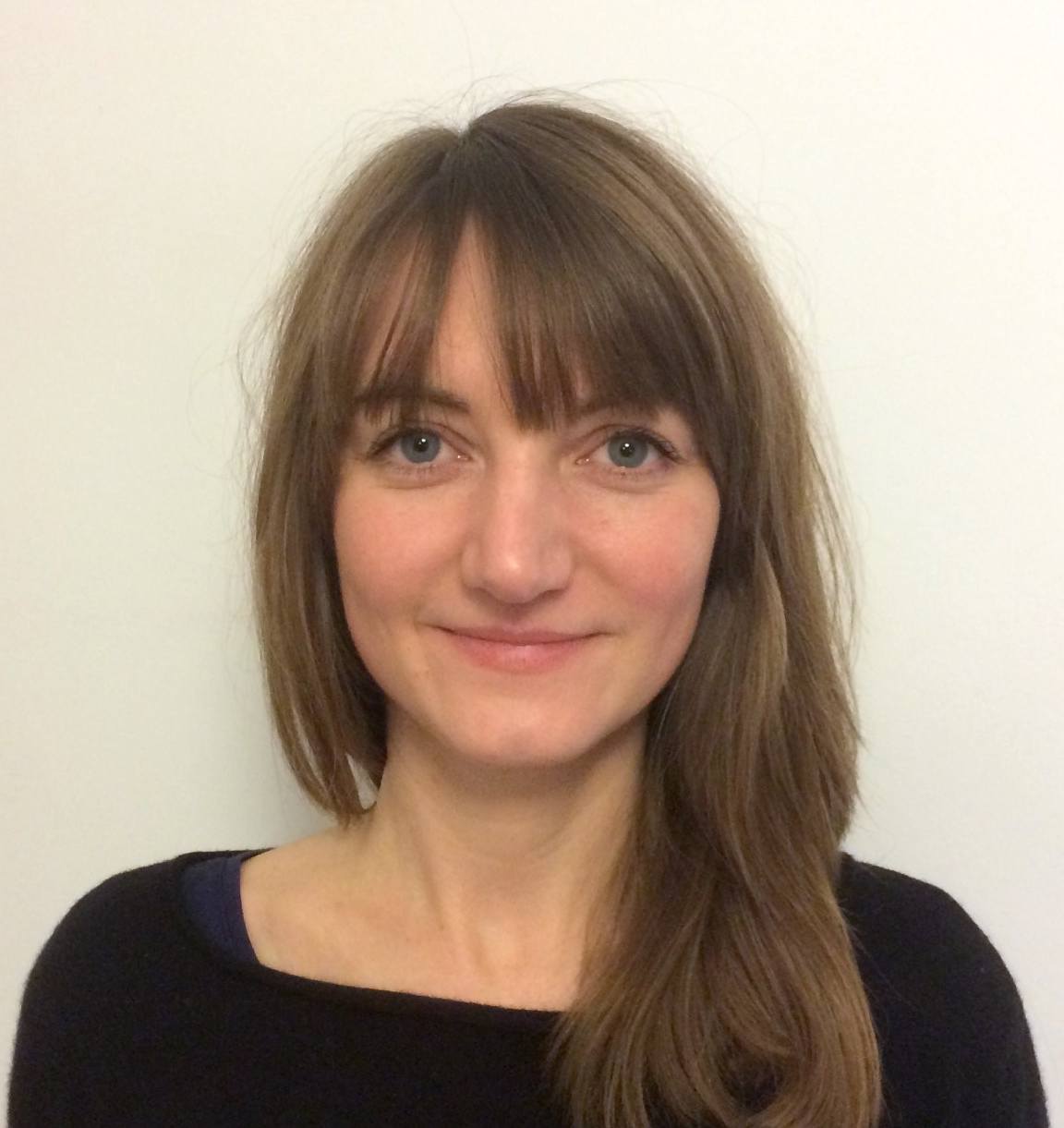
I studied Latin Literature and Linguistics, Ancient History and Classical Archaeology at the University of Zürich (Switzerland), a combination through which I soon became fascinated with Epigraphy. I have since collaborated in several large Epigraphy projects, most recently in the new edition of CIL XIII, working on the Latin inscriptions in the province of Germania superior found in Switzerland. I have always had an interest in both written and material evidence and in the new perspectives their combination and a combination of disciplines can open up. For my PhD thesis, this approach led me to investigate what literary, epigraphic, juridical and material evidence tells us about the use and performance of irrigation in Roman western Europe. As a Research Fellow with LatinNow, I am using the same approach to study Latinisation in Germania superior by contextualising inscriptions and writing equipment with social and other phenomena that define this part of the empire. I am delighted to be starting my own project after the end of LatinNow, funded by the Gerda Henkel Stiftung, Tabulae Ceratae: an object-based approach to Roman stylus tablets.
Technical Expert: Scott Vanderbilt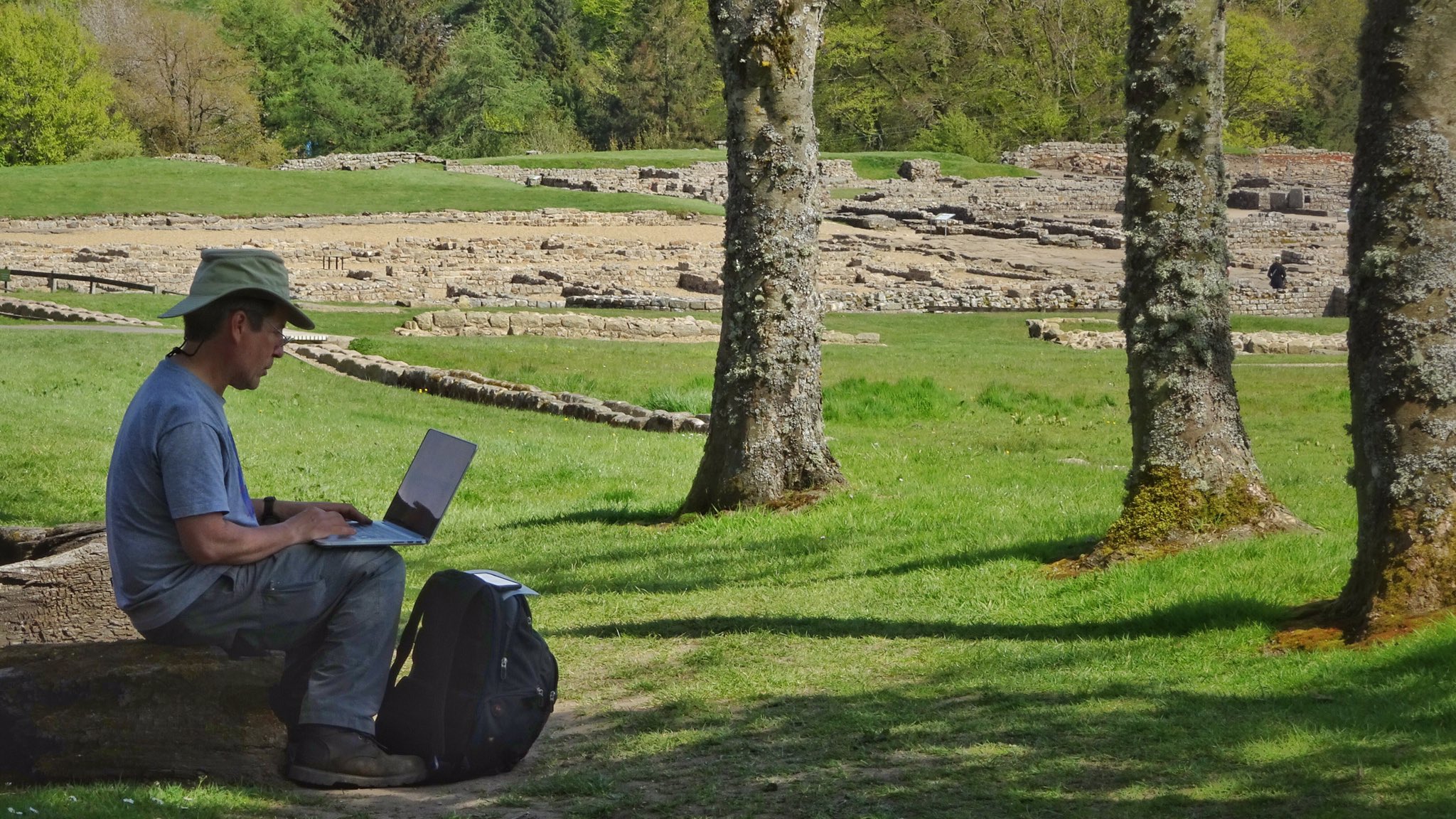
Scott is working with LatinNow to add more material to his wonderful resource on the inscriptions of Roman Britain: https://romaninscriptionsofbritain.org/ The website is publicly accessible and collates published readings for each inscription and will provide many new images. Scott is EpiDoc-ing every inscription to facilitate complex searching and sociolinguistic analysis.
Research Fellow on Iberian peninsula: Dr Pieter Houten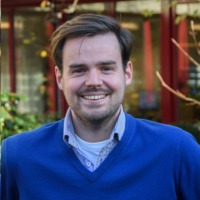
My research focus within the LatinNow project concerns Latinization on the Iberian Peninsula during the Imperial period. With the knowledge I have obtained writing my PhD-thesisCivitates Hispaniae on Imperial urbanization, I will build on the research regarding the Latinization of the Republican period by Dr Moncunill and Dr Estarán. The focus of my research is on the Latinization during the Imperial period, especially on those who learn to speak and write Latin after the initial contact. To understand this development the use of epigraphy within the imperial urban/rural domains and the distribution of instrumenta scripta/scriptoria will be studied. I will use a GIS-database to display the spread of the epigraphy andinstrumenta as to understand the development and to gain new insights into the distribution of writing and literacy.
Research Fellow on the epigraphic database: Simona Stoyanova 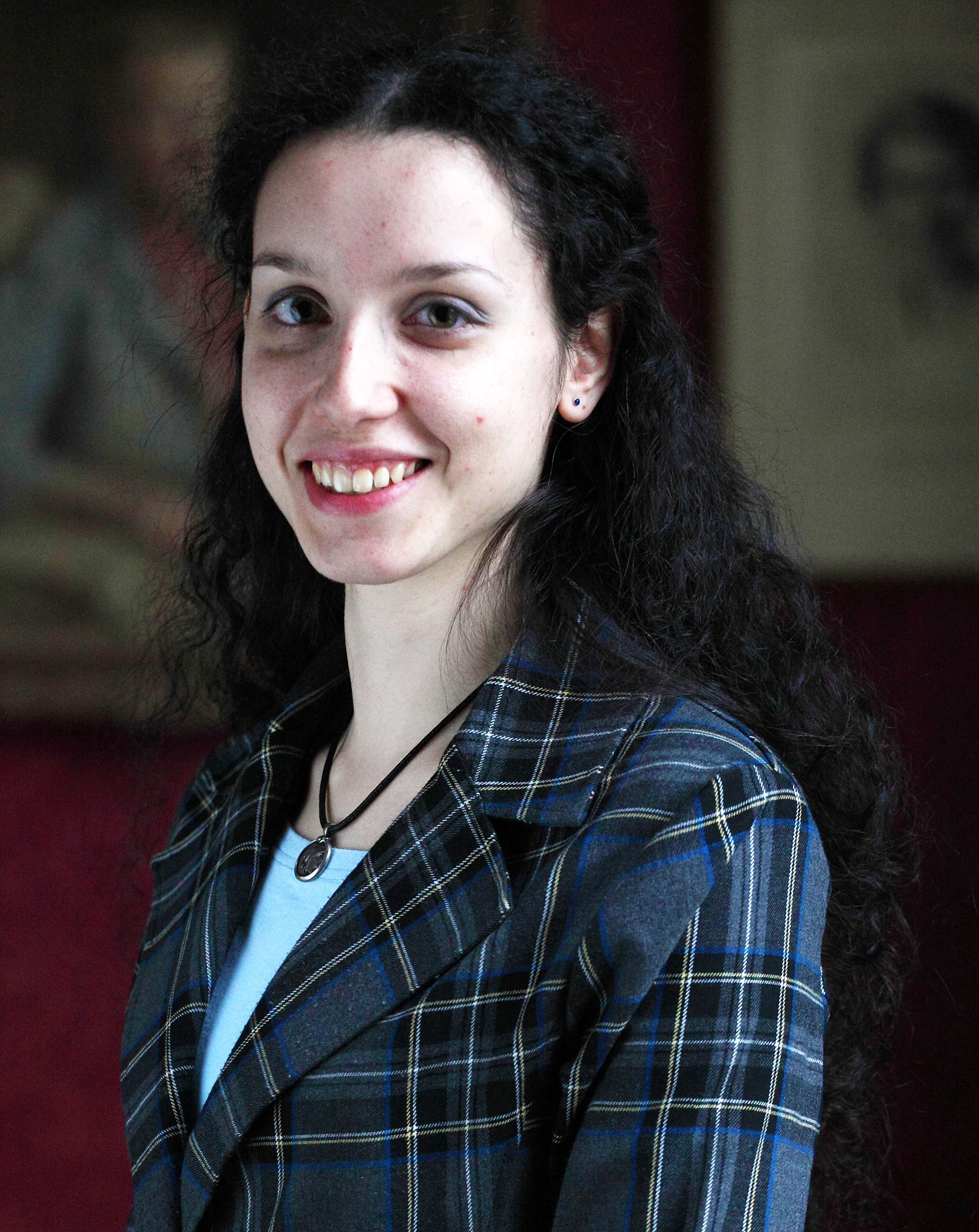
My interests in LatinNow include working with the large epigraphic dataset and training and supporting others in its use and in EpiDoc (I am a co-author of the EpiDoc Guidelines for XML encoding of ancient documents). My PhD in Classics and Digital Humanities at KCL is on relations and processes of influence between the Greek and Latin epigraphic traditions in the province of Thrace, and their exploration and presentation through a customised Archetype framework for epigraphers.
I have worked in Digital Classics since graduation (BA Sofia, MA KCL), first on two major digital epigraphy projects at KCL – Inscriptions of Roman Cyrenaica and IOSPE: Ancient Inscriptions of the Northern Black Sea. Between 2013-2015 I worked at the University of Leipzig as a research associate on the Open Greek and Latin (OGL) project for digitisation of ancient sources in the public domain as part of the Perseus Digital Library, and on two research projects from the Leipzig Open Fragmentary Text Series (LOFTS): the Digital Fragmenta Historicorum Graecorum (DFHG) and the Digital Marmor Parium. In 2016 I returned to London to work on IOSPE again, and later joined the Institute of Classical Studies, University of London, as a research fellow in library and information science.
Research Collaborator (Graffiti of Gaul): Dr Morgane Andrieu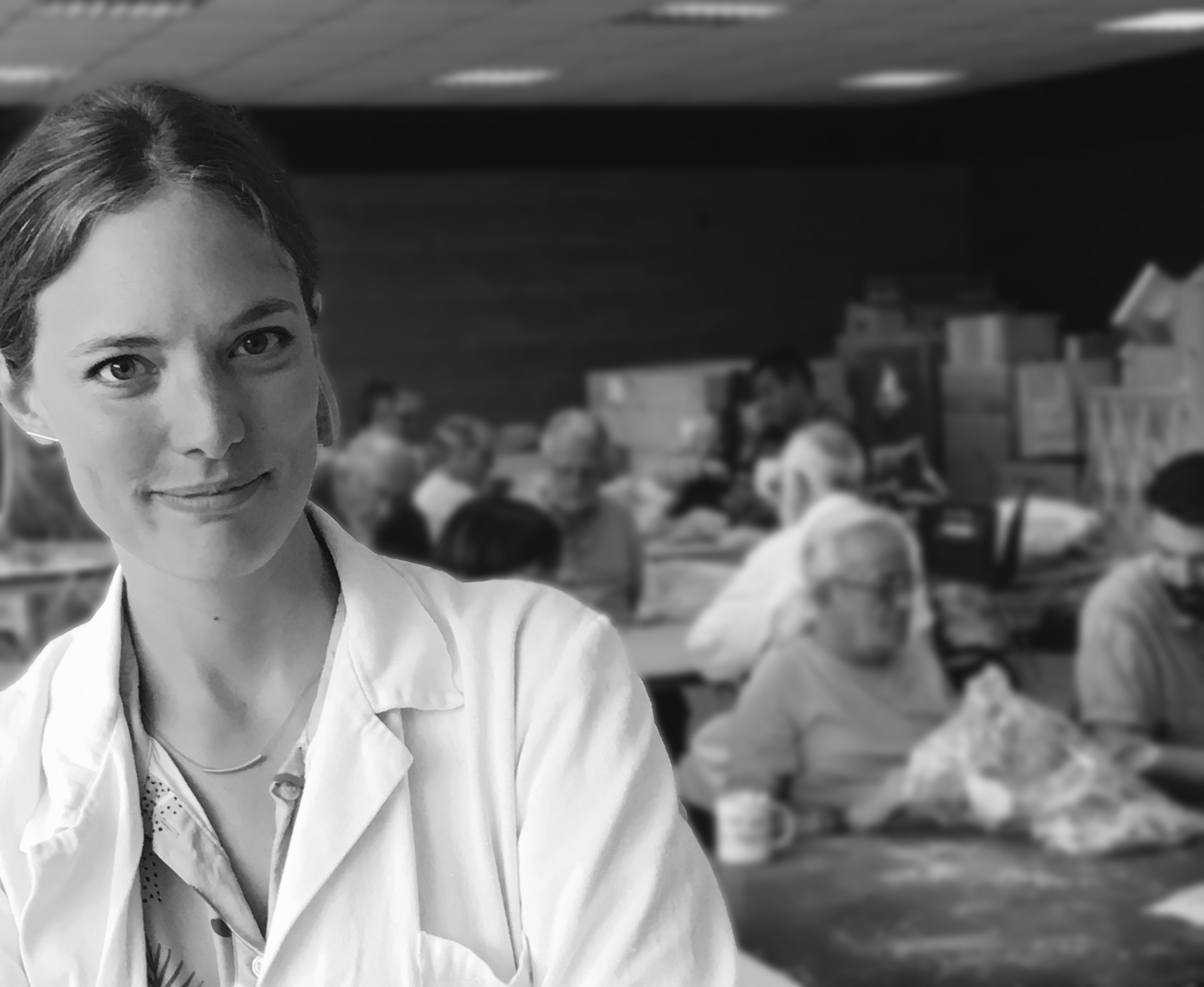
Morgane Andrieu holds a PhD jointly awarded by Paris-Sorbonne and Lausanne Universities. Her research focuses on understanding the use and spread of Latin writing in Gaul and the dynamics of cultural transfers in other provinces via the archaeology of writing. As an archaeo-epigrapher with a specialization in the study of graffiti, she studies the epigraphic habit, including early writing, its distribution and wide diversity depending on the archaeological contexts. Morgane’s Graffites en Gaule Lyonnaise, was awarded the Prix Bulliot (2017) and the John Gillam Prize (2018). This research produced the largest French corpus of graffiti on pottery published to date. She was subsequently a Research Fellow at the LabEx ARCHIMEDE, analyzing the spread of writing in Gallia Narbonensis.
Within the LatinNow team and as an Associate Researcher with the ArAr Laboratory (UMR 5138), she is leading a sub-project on the graffiti of Lugdunum. The team is first combing through Roman ceramic housed in the numerous archives of Lyon to look for traces of writing. Each sherd containing a graffito will then be analyzed, catalogued, illustrated and uploaded in a GIS database to provide a tool to study the spread of epigraphy in the city. As part of this project, she is working in close collaboration with Dr Michel Feugère, Senior advisor within LatinNow and director of the program Artefact (CNRS), to contextualize the graffiti and the writing equipment (styli, inkwells, etc.).
Research Collaborator: Dr Noemí Moncunill Martí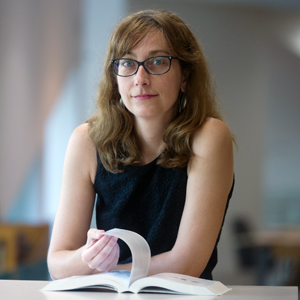
After my PhD in Classics at the University of Barcelona, I have been a Marie Curie Fellow at Université Paris Sorbonne and King’s College London and a lecturer in various Spanish Universities. I am the author of several works on Palaeohispanic languages and epigraphy (e.g. Monumenta Linguarum Hispanicarum V.2, Reichert Verlag, in press, co-authored with J. Velaza); as a Latinist, I have also worked on the edition of different speeches by Cicero (Fundació Bernat Metge 2013). I am currently coordinating a project to encode the Palaeohispanic scripts in Unicode, which will result in an important improvement for the IT processing and dissemination of the ancient languages from Iberia.
I worked as a Research Fellow on LatinNow until November 2018, exploring how, when and why communities in the Iberian Peninsula started to use writing; what kind of languages they spoke and wrote and how and why they switched to Latin after the Roman conquest. I have taken up a post at the University of Barcelona but continue to collaborate with the LatinNow team.
Research Collaborator: Dr María José Estarán Tolosa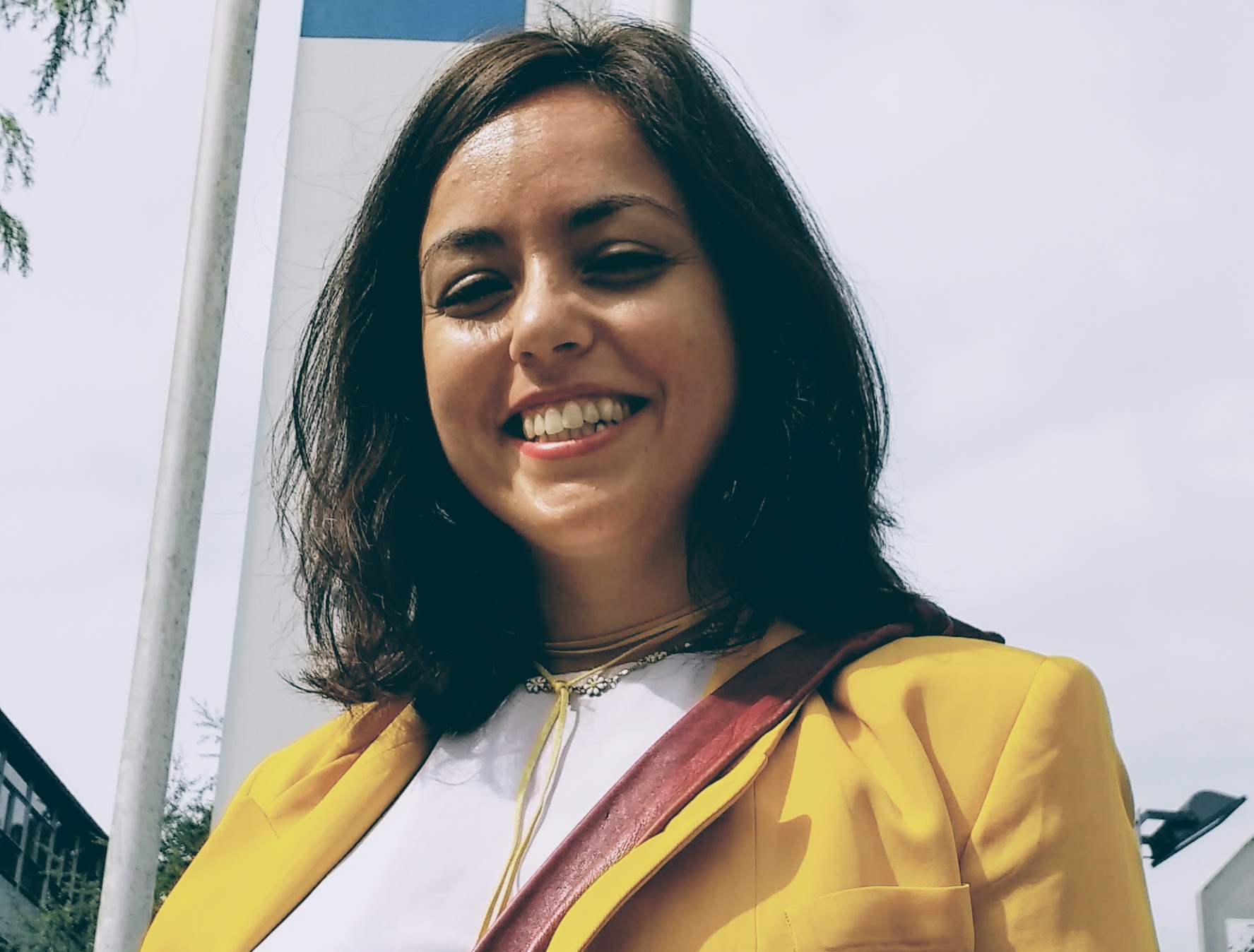
My main scientific interests are the cultural contacts in the Western Mediterranean territories which occurred as a result of the Roman domination, and I have carried out this research mainly in two lines. The first one, bilingualism and changes in the epigraphic habit, was especially developed in my PhD thesis, dedicated to bilingual inscriptions, and in my book Epigrafía Bilingüe del Occidente Romano. The second line of research, cultural contacts in pre-Roman religious dedications of Italy, Gaul and Hispania, has been opened thanks to an IF Marie Sklodowska-Curie at the Université libre de Bruxelles from 2015 to 2017. I have been collaborating with the project Hesperia from 2008, being in charge of the Numismatic database, and also with the COST Action Ancient European Languages and Writings.
My role on LatinNow as an epigrapher and historian is to investigate the sociolinguistic processes occurred in Hispania during the Roman establishment, focusing particularly in urban case-studies, especially comparing the evolution of coin inscriptions and epigraphy.
Senior Scientist: Dr Jane Masséglia (University of Leicester)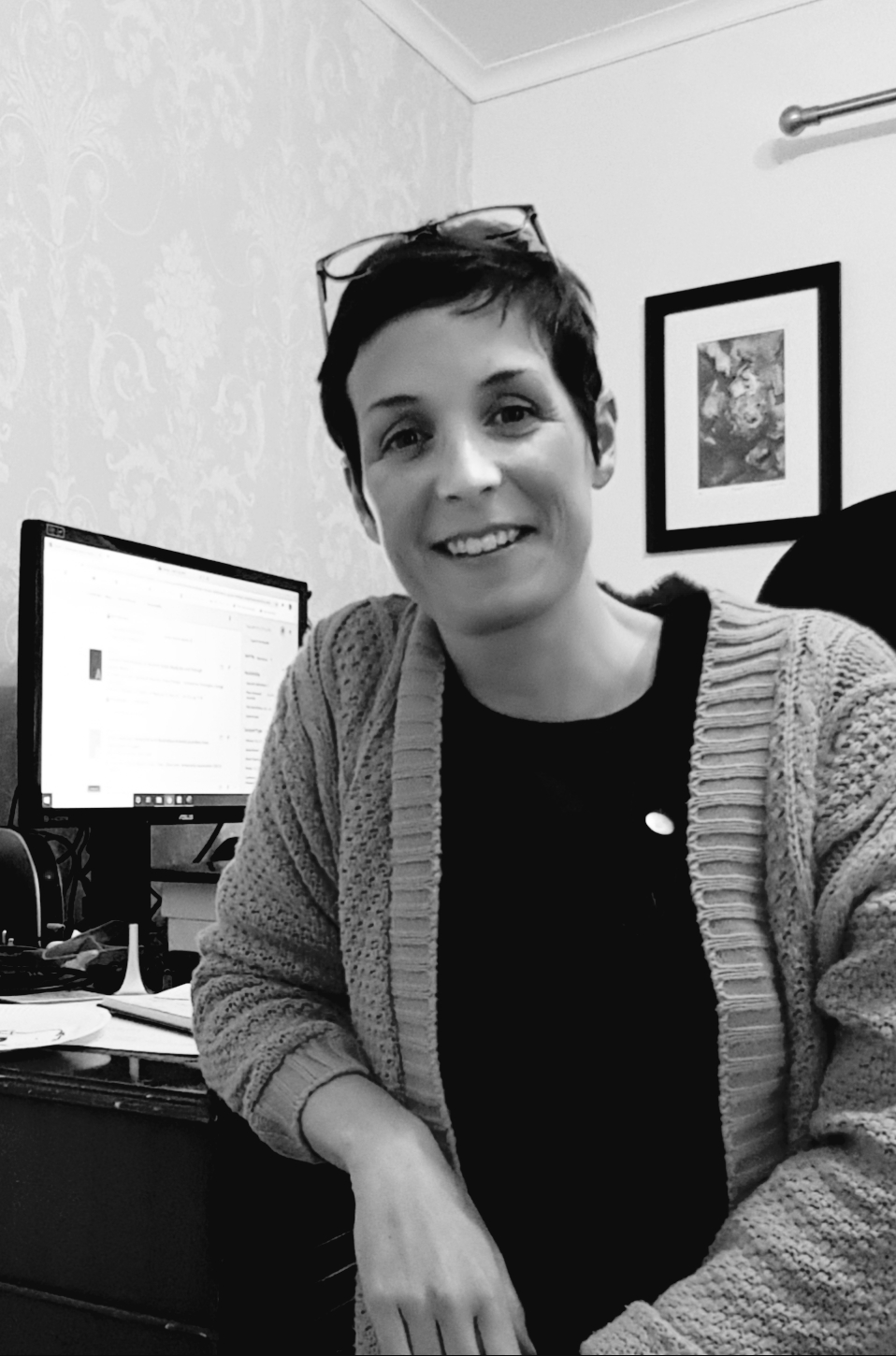
My interests lie in ancient social history, particularly in the lives of ‘ordinary’ individuals and groups. This is the underlying theme of my 2015 monograph for OUP, Body Language in Hellenistic Art and Society.
As a PGCE-qualified teacher, lecturer, and former postdoc on the Ashmolean Latin Inscription Project (AshLI), I am especially interested in communicating academic research to schools and the public by organizing events and creating media resources. My role on LatinNow is to co-ordinate our exciting public engagement programme with our partner museums in the UK and Europe and to spread the good news about our findings.
I studied for my undergraduate and postgraduate degrees at the University of Oxford, where I subsequently taught and held a number of postdoctoral roles. I am now a lecturer in the School of Archaeology and Ancient History at the University of Leicester.
Senior Scientist: Professor Alan Bowman (Director, Centre for the Study of Ancient Documents, University of Oxford)
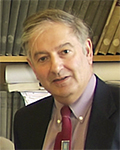 Formerly Camden Professor of Ancient History and Director of the Centre for the Study of Ancient Documents, Co-Director of The Oxford Roman Economy Project (OxREP). Research interests: Social and economic history of the Roman Empire, Documentary Papyrology, History of Ptolemaic and Roman Egypt, The Roman Economy, The Vindolanda Writing-tablets, Application of Information technology to the Study of Ancient Documents.
Formerly Camden Professor of Ancient History and Director of the Centre for the Study of Ancient Documents, Co-Director of The Oxford Roman Economy Project (OxREP). Research interests: Social and economic history of the Roman Empire, Documentary Papyrology, History of Ptolemaic and Roman Egypt, The Roman Economy, The Vindolanda Writing-tablets, Application of Information technology to the Study of Ancient Documents.
European senior advisers
Dr Béla Adamik, Eötvös Loránd University, Budapest (specialist in Latin linguistics)
Dr James Adams, All Souls College, Oxford (specialist in Latin linguistics)†
Professor Francisco Beltrán Lloris, University of Zaragoza, AIEGL committee member and director of AELAW (specialist in ancient European epigraphy, especially Iberian peninsula)
Professor James Clackson, University of Cambridge (specialist in Indo-European linguistics)
Professor Alison Cooley, University of Warwick (epigraphy specialist and director of AshLI)
Dr Ton Derks, VU Amsterdam (specialist in the archaeology and epigraphy of the Germanies)
Dr Borja Díaz Ariño, University of Zaragoza (specialist in the archaeology and epigraphy of the Iberian peninsula and management committee member of AELAW)
Dr Hella Eckhardt, University of Reading (specialist in Roman instrumenta scriptoria)
Dr Michel Feugère, CNRS (specialist in Roman instrumenta scriptoria)
Dr Pietro Liuzzo, University of Hamburg (specialist in digital epigraphy)
Professor Katharina Lorenz, University of Giessen (specialist in digital humanities)
Professor Marie-Thérèse Raepsaet-Charlier, Université Libre de Bruxelles (specialist in epigraphy)
Dr Marjeta Šašel-Kos, Research Centre of the Slovenian Academy of Sciences and Arts (specialist in epigraphy, AIEGL committee member and management committee member of AELAW)